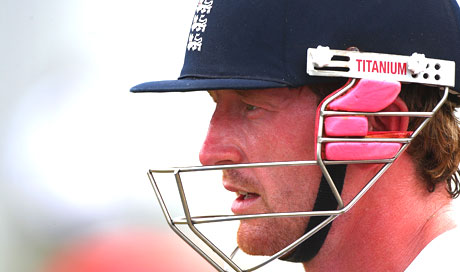John Stern: Common sense the key in England choices
May 1st, 2009 by John Stern in England, One-day cricket, Twenty20
It was a toss-up between James Foster and Ben Scott, of Middlesex, as to who was the best keeper at the Twenty20 finals day last year. Foster has a bit of international pedigree and more experience so his pick for the World Twenty20 is spot on.
Watching Geraint Jones look a bit average in the Champions Trophy in 2004, it struck me that it is illogical to pick a batsman-keeper in limited-overs cricket. You need your best gloveman to be watertight and stand up to the medium-pacers, as Foster will do. With more allrounders likely to be in your limited-overs line-up you can afford your keeper to bat down the order.
The new Flower regime has picked two squads so far and both have a fresh, balanced and common-sense look to them. This is the easy part of course. Backing the players even when they don’t perform is the tough bit.
Paul Collingwood as captain also has a common-sense feel to it. There are so few Twenty20 internationals played that there is no need to worry about future planning. Winning this tournament, or at least, putting up a good show is all that matters. Someone like Rob Key as captain would just have been bizarre and been unfair on the player involved. Collingwood made it clear that he had no more captaincy ambitions after his stint ended so ignobly last summer. But this is a one-off and, who knows, it might even work.
The squad looks to have the right blend of young and old(er), of T20 specialist and proven international. I don’t suddenly feel that England have any greater chance of winning the thing than they did 24 hours ago which is to say, not a great deal. Other sides like India and South Africa have better hitters, more experience and more variety. And Twenty20 isn’t a lottery, as some might choose to believe. In the next issue of TWC (out next Friday), Collingwood describes T20 as a more “skill-based” game than the more mentally challenging Test cricket. Other countries have more players who are more athletic and more skilled in this no-margin-for-error form of the game.
John Stern is editor of The Wisden Cricketer
Posted in England, One-day cricket, Twenty20 | No Comments »


